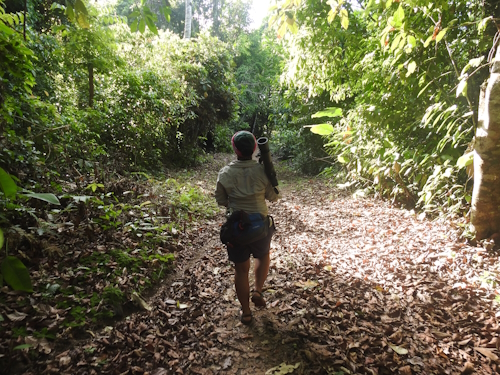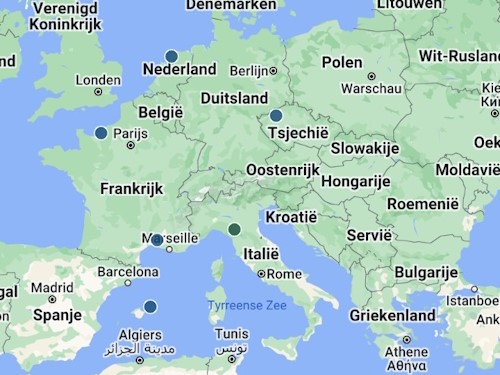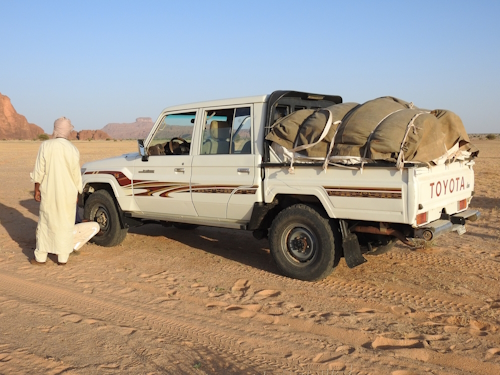Blog WH Travellers
Learning from the Birders
The birding community is probably the oldest and largest in the world of people who travel to complete lists. There has been an intriguing event in that community recently, where two people claimed, on the same day, to have seen over 10,000 bird species – the first person(s) to do so. Even with no interest in birding, the debate that followed has produced interesting conclusions that are valid for all those who travel by lists.

Getting there
The recipe for reaching the high numbers seems to be quite similar. With a total number of identified birds between 10,906 and 11,189 (depending on which list you follow) and the WHS total currently at 1199, for birders thousands are what hundreds are for WH travellers.
So how do you get as far as 8,000 or 9,000 birds (or 800 or 900 WHS)? Moving up the list slowly via the 400(0)s and 600(0)s can be achieved while working full time: ”Their differences are not time and money but dedication, effort, determination, longevity, obsession, etc.”. But “It is the marginal differences that produce 8,000+, 9,000+, etc. Those are big totals. The clean-up trips. The effort for marginal returns. The less salubrious places. The less safe experiences. That is why there are so few people with such numbers.”
The birders say that due to the increased availability of information, it is easier to get high numbers now than it was decades ago. “… anybody with a list that is genuinely in the 8k+ region will have been doing this for decades and spent a lot of time and money on foreign trips, but a lot of the earlier trips will have been very inefficient by modern standards. By the time you get into these numbers, you've probably visited all the major birding countries several times, with increasingly low returns of new species (and many of these probably splits you didn't try for previously as they weren't recognised).”
We see a similar issue with WHS: even when you have visited a country several times and been to each of its regions, suddenly a ‘new’ WHS pops up (as a new inscription) and you have to go there again only for that one tick. See for example below the Western European Missing Map of high-ranked Thomas Buechler, virtually only lacking visits to the WHS of Talayotic Menorca, Zatec, Evaporite Karst, Nimes and the Eisinga Planetarium (all inscriptions from last year):

The role of Money
Although money isn’t the biggest differentiator to get into the higher ranges, as explained above, it probably is so at the final stages of completion or when you are vying for the #1 position among your peers.
When interviewed by the Mammalwatching podcast, the no. 1 birder confided that money was becoming his biggest restraint. Hiring specialized local guides seems to be the norm nowadays to find the wanted birds, and they come at a cost. Another birder stated: “the length of the list really is down to money when you can pay people to do it for you and the only thing you need is to survive being there.” This view also is reflected in “most if not all professional athletes have managers, coaches, dietitians etc. Hiring professionals makes sense at the edge of possibility.”
The ‘professional help’ isn’t so obvious among WH travellers. The ones that post their experiences on this website try to reach all WHS under their own steam, planning their own trips and resorting to a guided trip to a single WHS only sporadically for practical reasons. In contrast, there are many specialized birding companies and I also noticed last year that many 'country collectors' rely on companies like Lupine to get them easily and cheaply into slightly more difficult countries (one guy had already done more than 15 trips with them!).
Money does become a thing though when you try to visit all WHS over a lifetime. When we look at our list of Least Visited Sites, all WHS have been ticked or reviewed by someone except for Ivindo NP and Odzala-Kokoua (both certainly doable, but expensive and fairly new on the list) and Salonga NP (older and truly hard, check this) - so in theory ticking them all is feasible. But the real hurdle in completing them is having to take multiple “10,000 EUR-trips” to cover all the ultra-expensive ones, mostly involving cruises to remote islands such as these.

The role of Skill
Getting high numbers can also be down to the skills you have:
“You go birding and 9 out 10 interesting sightings of the day, he nails them first. No, 19 out of 20. He sees tiny movements in the tops of trees, scans distant places, and looks in places that you don't. … Checks everything, always scanning, really knows UK birds very thoroughly. He's got good hearing and knows calls extremely well. His track record is crazy. There's a definite sixth sense of where and when to look, and when not to.”
I wonder what a similar ‘WHS skill’ would be. Being on top of what will be nominated and a decent bit of preparation for how the site can be reached and what the opening hours are certainly helps. Creating fault-tolerant itineraries for your trips is a skill, so you get all the WHS you planned to do. Recognizing windows of opportunity for notoriously "unsafe" destinations also is a plus. But it’s mostly planning and perseverance I believe.
What's your opinion on the skill of the WH traveller and the need for 'professional help'?
Els - 28 April 2024
Comments
Els Slots 29 April 2024
@Can – I like the idea of attributing a “strategizing” skill to the WH Travellers. At least I put a lot of effort into it. It’s the result I think of the combination having (a) a fairly long list that no one has ever fully mastered, with (b) very specific places to visit that also have their own particularities (pre-booking, core zone identification, transport etc) and (c) that is refreshed yearly with another 25 or so new ones that are quite random (as in Wojciech’s Turkey example).
@Wojciech - yes, spotting OUV doesn't usually need a guide, maybe it's even the other way around: you arrive as the expert and may have to ignore local guides telling false stories
@Clyde – I agree that ticking a WHS alone is often more satisfying. I prepare better when I am alone, look out for specific things I have read about, and also feel it more as an accomplishment having reached a remote site.
@Danny – We hope to reopen for new subscriptions soon, or provide a workaround. We'd be glad to welcome you.
Danny Bacon 28 April 2024
A very interesting read, as my brother is a twitcher, and we quite often have these same discussions surrounding our different passions. Time, Money, Patience, Planning and a little luck goes a long way. I am waiting to register as I feel I have found my tribe. I have visited 166 sites and about to embark on a 5-year WHS journey (retirement) focussed on visiting WHS sites. I look forward to contributing to discussions and reviews in the future.
Clyde 28 April 2024
Very interesting post indeed, especially for me as an amateur birder and a wh traveller.
Personally, in both cases I find it much more satisfying to spot birds/tick whs alone if at all possible. Obviously, it requires a lot of planning in both cases but also a great deal of luck and patience for birding. I don't mind going on a private or small group guided tour for the harder sites or when it is absolutely necessary.
Wojciech Fedoruk 28 April 2024
Very nice post Els.
I think there are not too many similarities between birders and WH travellers. Professional help may be needed to go to particular site (some of them are not doable on your own), but usually you don't need any help to spot OUV (contrary to particular bird).
I also don't think there is a special skill needed, except, as you write, planning and perseverance. Planning is key, but you will never guess which site may become WHS if it is not even on a T-list. Generally if your time is limited it is better not to focus too much on TWHS, unless they are already scheduled for future WHCs. But even that may be tricky. I remember my trip to Turkey in 2019. I visited Mudurnu and Kizilirmak (both planned for 2019, both withdrawn) and Ahlat (planned for 2020 or 2021, in the end nothing happened) and, albeit being very close, skipped Arslantepe (inscribed soon afterwards).
Can SARICA 28 April 2024
Thanks for this amazing post, Els.
I truly believe in developing a "World Heritage Sites skill". I've transformed as a traveler over the past decade. Take, for instance, my trip to South Africa 8 years ago. I scheduled my visit to Robben Island for the final day of my Cape Town stay. Unfortunately, it was canceled due to bad weather, and I missed out. If I were the traveler I am today back then, I would have prioritized this visit on my first day, giving myself flexibility to reschedule if needed.
What I've learned from seasoned world heritage site travelers is that "clean-out" visits are an essential part of the adventure, unless you're systematically visiting all WHS and TWHS in a region without skipping any (which I humorously think only Zoe accomplishes!). However, I believe the key factor in developing your WHS skill is the number of these clean-out visits you undertake. For example, this summer I plan to visit up to 18 WHS from Guatemala to Panama within a tight two-week timeframe. One approach is to complete each country's sites during this trip to avoid future clean-out visits. If I start in Panama, however, I'll likely only have time to cover Panama and maybe 1 or 2 WHS in Costa Rica. Alternatively, by saving the more time-consuming and costly sites like Darien, Coiba, Stone Spheres, Cocos, Rio Platano, and Tikal for a future visit, I can travel all the way north to Guatemala within two weeks. This strategy allows me to skip 6 WHS initially, each requiring 7-10 days and a significant budget, except for Tikal and Stone Spheres, which can be done in 2-3 days. By adopting this approach, I'll have the opportunity in about five years to visit any TWHS I missed during my first trip that have been inscribed or considered since then. Additionally, subsequent visits may become more affordable and easier over time. These strategic insights have evolved in recent years as I've learned from the experiences of seasoned WHS travelers.